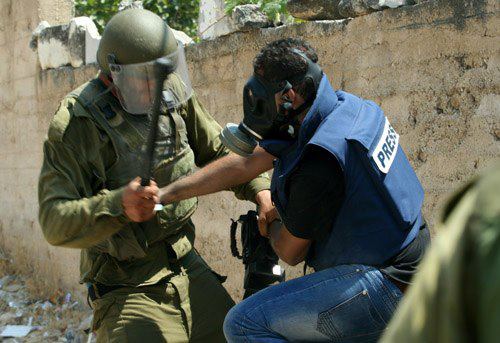Tag: Video
-
From the children of Gaza: Samouni Street
20 August 2012 | Besieged Gaza, occupied Palestine From the children of Gaza comes this adorable animation depicting the story of 4 kids of the extended Samouni family in Gaza. By animated drawings they express what happened to them and their family during operation ‘Cast Lead’.
-
Israeli military beats and arrests journalists, suppresses Kufr Qaddoum demonstration
By Marshall Pinkerton and Alma Reventos 18 August | International Solidarity Movement, West Bank On Friday, August 17, 5 were injured and 8 arrested during the weekly protest in Kufr Qaddoum. Israeli soldiers fired tear-gas canisters, rubber-coated steel bullets, and beat protesters with wooden sticks. The village experienced an unprecedented amount of violence during the peaceful…
-
Hebron: Escalation of Israeli army aggression
By Selina Khalil and Hakim Maghrib Photos by Jonas Ravn, Markus Fitzgerald, and Selina Khalil 27 July 2012 | International Solidarity Movement, West Bank For several days this past week, the Israeli army has assaulted Palestinians and conducted raids in Palestinian residential areas of Hebron. The raids have taken place in both the Israeli-controlled area…

